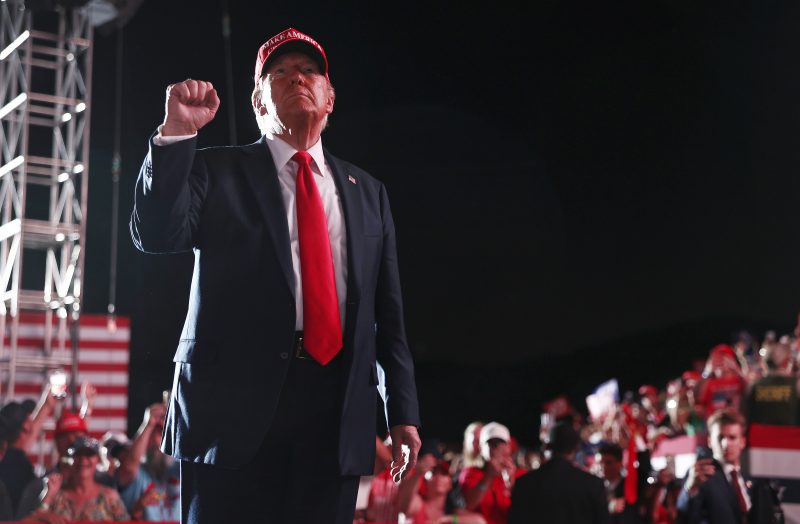Trump Suggests Heckler Should Get the Hell Knocked Out of Her After Rally
The recent statement made by former President Donald Trump, where he suggested that a heckler should get the hell knocked out of her after a rally, has sparked controversy and discussions among the public. Trump’s remarks came during a campaign-style rally in Iowa, where he was interrupted by a protester.
While heckling and protests are not uncommon at political events, Trump’s response to this particular heckler has raised concerns about the rhetoric and potential consequences of such comments coming from a prominent figure like a former president.
Critics of Trump’s statement argue that it is inappropriate and irresponsible for a public figure to incite violence or suggest physical harm towards individuals, regardless of their actions. They point out that such language can inflame tensions, encourage aggression, and set a dangerous precedent for how conflicts should be handled in society.
Supporters of Trump, on the other hand, defend his remarks as a form of tough rhetoric commonly used in political circles. They argue that it was a spontaneous reaction to the disruption caused by the heckler and should not be taken literally or as a direct call for violence.
However, regardless of one’s political affiliation or personal views on Trump, it is essential to consider the potential impact of such statements on public discourse and the overall tone of political engagement. In a society already fraught with division and polarization, the language used by political leaders can either help to bridge divides or further deepen existing rifts.
Moreover, the power dynamics involved when a figure like Trump makes such comments cannot be overlooked. As a former president with a significant following and influence, his words carry weight and can shape the attitudes and behaviors of his supporters. In this context, advocating or joking about violence can have serious implications and consequences.
It is crucial for leaders, whether in politics or any other field, to exercise restraint and mindfulness in their public communications. Words have the power to inspire, unite, or divide, and the responsibility that comes with influencing public opinion should not be taken lightly.
In conclusion, Trump’s suggestion that a heckler should get the hell knocked out of her after a rally underscores the need for a more thoughtful and respectful dialogue in our public discourse. While political disagreements are inevitable, resorting to violent language or actions should never be tolerated or normalized. As a society, we must strive to uphold civility, empathy, and constructive engagement, even in the face of passionate disagreements.

